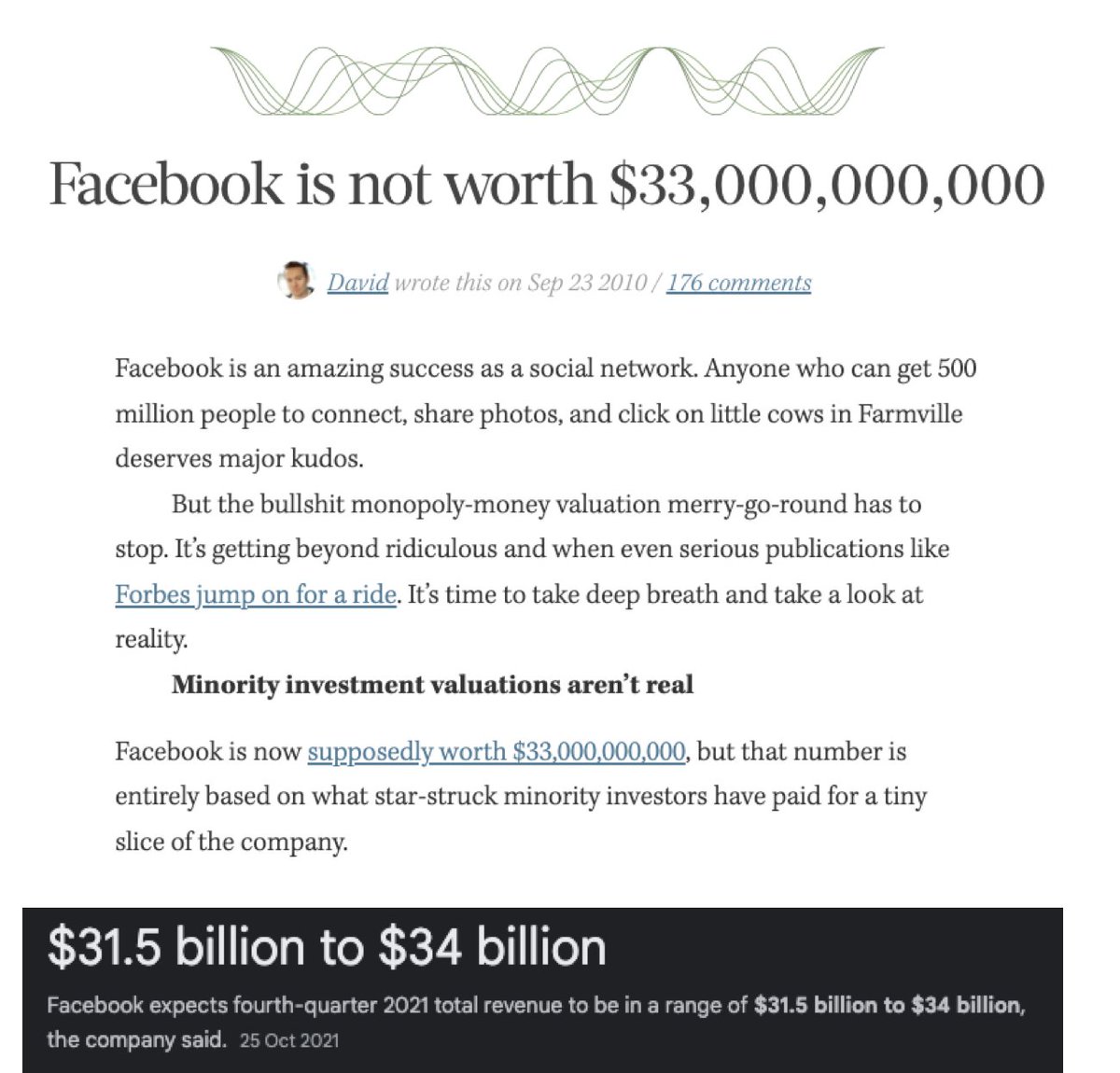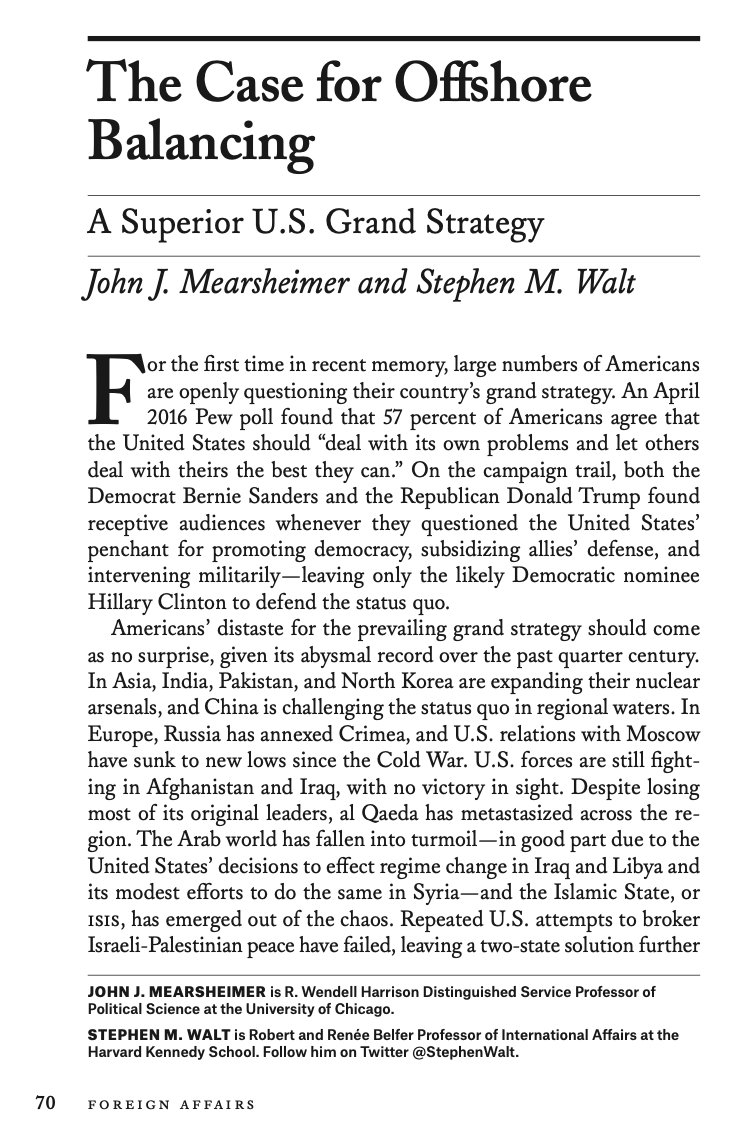
"...the only amount of decentralization people want is the minimum amount required for something to exist..."
This is true for the same reason internet apps use the minimum necessary bandwidth to exist.
Blockspace, like bandwidth, is rapidly increasing but costly and finite.
This is true for the same reason internet apps use the minimum necessary bandwidth to exist.
Blockspace, like bandwidth, is rapidly increasing but costly and finite.
https://twitter.com/moxie/status/1479567493215637506
Moxie's article is fine, thoughtful, constructive, worth reading.
But it doesn't discuss the concept of blockspace, which is the key technical constraint on web3, just as bandwidth was to web2 (and arguably web1).
[1] research.paradigm.xyz/ethereum-block…
[2] bitcoinsuisse.com/research/decry…
But it doesn't discuss the concept of blockspace, which is the key technical constraint on web3, just as bandwidth was to web2 (and arguably web1).
[1] research.paradigm.xyz/ethereum-block…
[2] bitcoinsuisse.com/research/decry…

In 2000, Netflix mailed DVDs. They knew streaming was the future. But they also knew bandwidth was limited.
In 2022, many web3 entities are partially centralized. They know decentralization is the future. But blockspace is limited.
Need Nielsen's Law for blockspace.

In 2022, many web3 entities are partially centralized. They know decentralization is the future. But blockspace is limited.
Need Nielsen's Law for blockspace.


We can visualize the buy-side demand for blockspace with cryptofees.info. People are paying real money in fees to store things on chain, just like they paid for bandwidth.
These fees are analogous to *revenue* for each L1 chain, and give some basis for coin valuation.
These fees are analogous to *revenue* for each L1 chain, and give some basis for coin valuation.
Visualizing growth in sell-side supply for blockspace is harder, because a byte on one chain is not exactly interchangeable with another chain.
But here's a graph of demand for BTC block size. Fast growth till 2016, then supply came from other chains.
blockchain.com/charts/avg-blo…
But here's a graph of demand for BTC block size. Fast growth till 2016, then supply came from other chains.
blockchain.com/charts/avg-blo…

It's not my goal here to revisit the block size debate — I understand the arguments on both sides — but empirically what happened is that when BTC blocks got to ~1MB, other chains arose to provide demand for blockspace.
ETH use started soaring in 2017.
etherscan.io/chart/blocksize
ETH use started soaring in 2017.
etherscan.io/chart/blocksize

Now Ethereum's L1 layer has in turn seen its fees rise, such that it cannot accommodate all the demand for its blockspace at the price users want to pay.
So that has meant use of Ethereum L2s (like Polygon) and migration to other L1 chains (like Solana).
messari.io/asset/ethereum…
So that has meant use of Ethereum L2s (like Polygon) and migration to other L1 chains (like Solana).
messari.io/asset/ethereum…

Of course, the Bitcoin ecosystem is also working on scaling (via Lightning & more) and the Ethereum ecosystem is as well (PoS, optimistic rollups, ZK rollups). These are essentially efforts to meet blockspace demand.
[1] coindesk.com/tech/2021/09/3…
[2] ethereum.org/en/developers/…
[1] coindesk.com/tech/2021/09/3…
[2] ethereum.org/en/developers/…
But generally speaking that's an overview of how both demand and supply of blockspace have been rapidly rising over the last several years.
See also @cdixon on this:
newsletter.banklesshq.com/p/blockchains-…
See also @cdixon on this:
newsletter.banklesshq.com/p/blockchains-…

Now, as noted above, 1 byte of blockspace on one chain is not the same as 1 byte on another chain.
There are different levels of security. Bitcoin's security level is for sovereign-resistant digital gold. Newer L1s are guarding things like video game points & don't need as much.
There are different levels of security. Bitcoin's security level is for sovereign-resistant digital gold. Newer L1s are guarding things like video game points & don't need as much.
A few more articles of relevance.
First, on quantifying decentralization, what we talk about so much. Short answer: the minimum number of entities needed to compromise a system is a measure of decentralization.
Quantification then allows improvement.
news.earn.com/quantifying-de…
First, on quantifying decentralization, what we talk about so much. Short answer: the minimum number of entities needed to compromise a system is a measure of decentralization.
Quantification then allows improvement.
news.earn.com/quantifying-de…
Second, on why decentralization is valuable.
Public blockchains are massively multiclient databases, where every user is a root user. That is distinct from (say) PayPal or FB's databases; only their sysadmins have root and others are gated by API keys.
balajis.com/yes-you-may-ne…
Public blockchains are massively multiclient databases, where every user is a root user. That is distinct from (say) PayPal or FB's databases; only their sysadmins have root and others are gated by API keys.
balajis.com/yes-you-may-ne…
In summary:
- decentralization improves programmability, transparency, exportability, etc
- blockspace enables decentralization
- blockspace is scarce but rising
- and high-blockspace chains & applications are now coming online
So: blockspace is to web3 as bandwidth is to web2.
- decentralization improves programmability, transparency, exportability, etc
- blockspace enables decentralization
- blockspace is scarce but rising
- and high-blockspace chains & applications are now coming online
So: blockspace is to web3 as bandwidth is to web2.
Decentralization is constrained by blockspace, but blockspace is increasing, so decentralization will be increasing.
• • •
Missing some Tweet in this thread? You can try to
force a refresh
























